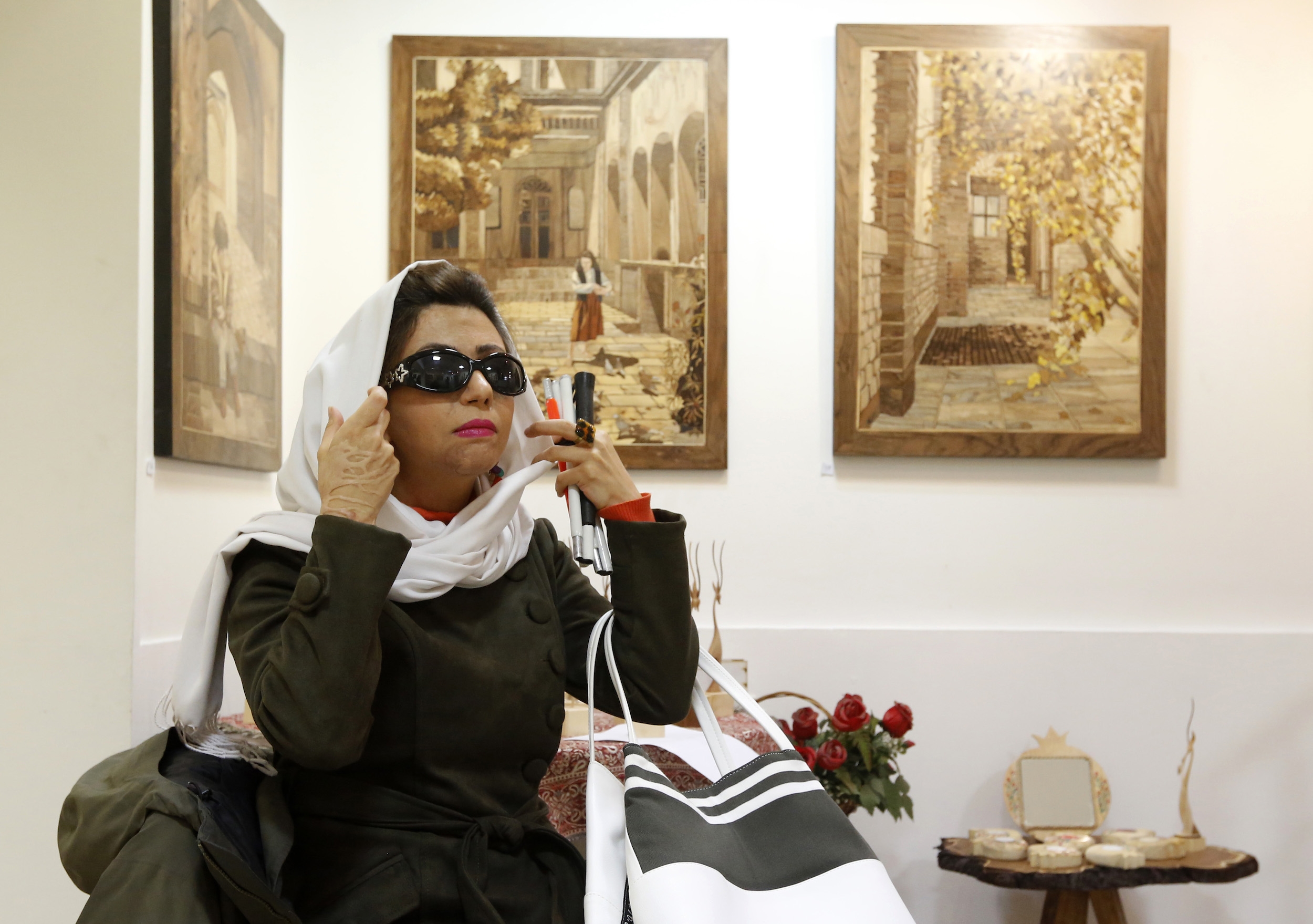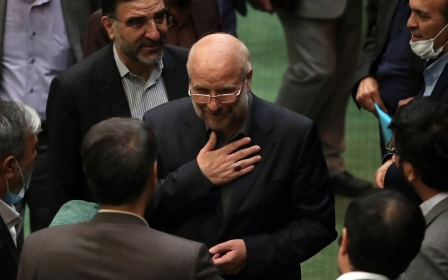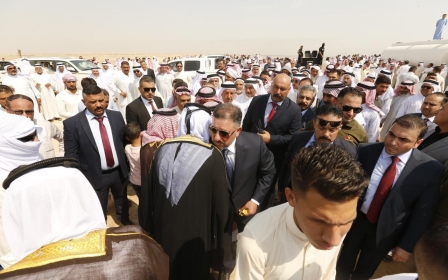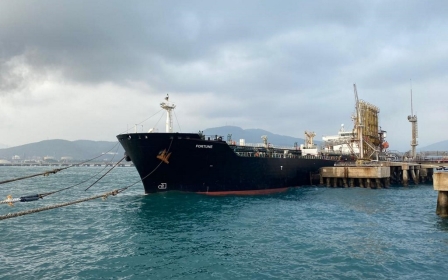Iranian press review: Conservatives gear up for 2021 presidential elections

Conservatives eye 2021 presidential race
Following a landslide victory in February’s legislative elections, Iran’s conservatives, hardliners and center-right political factions have come together to work towards a win in next year’s presidential elections, local media reported.
Iran’s Chief Justice Ebrahim Raisi, a rival of President Hassan Rouhani during the 2017 presidential elections, has said he would stay out of the 2021 race. Analysts believe it’s a move to consolidate support and avoid having multiple conservative candidates entering the race.
On the other hand, the country’s reformist and moderate political parties, which stood behind Rouhani in the last two presidential elections, do not appear to have a clear candidate to support in the 2021 elections, after several leading politicians publicly rejected rumours over their participation.
In a recent interview, Iran’s Foreign Minister Mohammad Javad Zarif put to rest months-long speculations over his possible candidacy for presidency, saying he had no plans to enter the race.
Mohsen Hashemi, another potential pro-reformist candidate and the current head of Tehran’s city council, also rejected talks about his candidacy in the upcoming presidential elections, Tasnim news agency reported.
The political sphere in Iran is tightly controlled by the country's political leadership. Three main strands - reformists, conservatives and hardliners - dominate the political landscape.
While reformists are seen as the most liberal faction, they nonetheless fully back the Islamic Republic’s self-proclaimed “revolutionary” policies, including countering the US and the West as well as opposing more political and social freedoms.
Rouhani’s re-election in 2017 was widely based on his success in inking the 2015 nuclear deal and his promises to normalise political relations with the West.
The conservatives’ victory in the latest legislative elections was due to the worsening economic crisis and the impact of the United States’ maximum pressure campaign - which proved the failure of the reformists’ foreign policy and domestic strategies.
Acid attack survivor fronts fashion campaign
An Iranian woman has become the first acid attack survivor in the country to model for a domestic clothing brand, ILNA news agency reported.
Masoumeh Ataei, who was left blind and permanently disfigured after an acid attack in 2010 by her former father-in-law, has participated in a project for a clothing label that specialises in dresses with traditional Iranian designs.
This is the first time that an Iranian brand has asked an acid attack survivor to model its products, and the project was made possible with the backing of Iran’s Association of Support for Acid Violence Victims.
In the campaign, Ataei worked with fashion photographers and appeared in front of the camera in 50 different dresses designed and tailored in the style of Iranian traditional needlework.
By accepting this project, Ataei said she hoped to play a more active role in society and change the perception of beauty in the country.
Since the assault, Ataei has become an advocate for women affected by acid attacks. She has also continued to participate in art and culture projects, including acting in three plays.
Iran sees about 60 to 70 cases of acid attacks every year, according to Ministry of Health statistics. The victims are often women who are “attacked by family members or presumably hardline supporters of the compulsory hijab”, said Radio Farda.
In 2019, Iranian parliament passed legislation approving tougher punishment for perpetrators of acid attacks and providing support for survivors.
MP proposes daily reading of Quran
A proposal by a newly elected legislator in Iran calling for the daily reading of the Quran has raised eyebrows in the conservative-dominated parliament.
While the new Iranian parliament started its term vowing to take harsher stances against the US and to lean more towards hardliners, the Khatm al-Quran proposal by Hossein Jalali, an MP close to the camp of former president Mahmoud Ahmadinejad, surprised many politicians.
Khatm al-Quran is a religious tradition in which Muslims recite the Quran from the beginning to the end. Jalali proposed a daily reading of two pages from the Quran by MPs before the start of parliamentary sessions.
If each of the 290 MPs recited two pages from the Quran, one collective Khatm al-Quran would take place every day, Jalali told Iqna news agency.
Abbas Salimi Namin, a conservative political analyst, accused Jalali of populism and following political strategies that were used by Ahmadinejad.
“We have the bitter experience of seeing the Ahmadinejad administration as an example of using religion deceptively,” Salimi Namin was quoted by the Tasnim news agency as saying.
“We should not let this experience be repeated.”
Two arrested over devastating wildfires
Iranian police have arrested two people in relation to the weeks-long wildfires that have burnt over 600 hectares of oak forests in the Zagros mountains, saying the blaze was caused by humans, ISNA news agency reported.
On 28 May, fire broke out in the protected area of Khaeez in Kohgiluyeh and Boyer-Ahmad province, in southwestern Iran, and spread through the oak forests in northern parts of Khuzestan province.
Last week, Iranian sources reported that the fires had been extinguished after two weeks of burning. However, according to Eskan news, they have since rekindled in parts of Khaeez.
According to sources familiar with the matter who spoke to local media, the fire was started on purpose due to land disputes between two nomadic tribes.
Iran’s judiciary system has decided to increase the punishment of causing wildfires up to 10 years in prison, Mehr news agency reported.
However, the wildfires have already severely damaged the region’s wildlife habitat, and the effect would take “half a century” to reverse, said wildlife expert Ahmad Rahmani.
* Iranian press review is a digest of reports that are not independently verified as accurate by Middle East Eye
Middle East Eye propose une couverture et une analyse indépendantes et incomparables du Moyen-Orient, de l’Afrique du Nord et d’autres régions du monde. Pour en savoir plus sur la reprise de ce contenu et les frais qui s’appliquent, veuillez remplir ce formulaire [en anglais]. Pour en savoir plus sur MEE, cliquez ici [en anglais].




